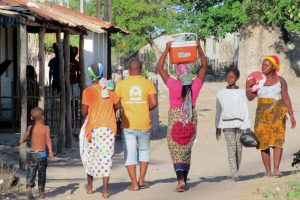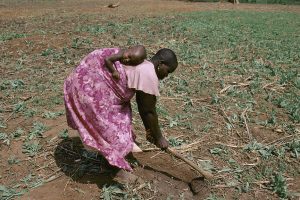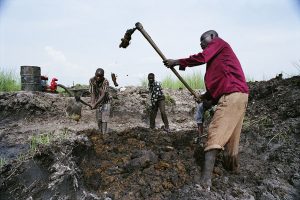Institutional Diagnostic Tool
We are undertaking a research initiative to design an institutional diagnostic tool that will permit policy-makers to identify weak institutional areas that constrain development and appropriate directions for reform.
Read MoreInstitutional Diagnostic Synthesis
The Institutional Diagnostic synthesis is the culmination of the research undertaken in the four EDI case studies in Bangladesh, Benin, Mozambique and Tanzania. The synthesis also reflects on two historical case studies – Taiwan and South Korea – and describes…
Mozambique Institutional Diagnostic
The Mozambique Institutional Diagnostic (MID) study officially started in February 2019 under a contract with the Development Economics Research Group (DERG) of the University of Copenhagen, in coordination with activities supported by DERG and UNU-WIDER in Mozambique. The Mozambique study is…
Bangladesh Institutional Diagnostic
Bangladesh has been identified as the third country study for research towards developing an institutional diagnostic tool. The Bangladesh institutional diagnostic aims at comprehensively exploring the relationship between the characteristics and the functioning of a country’s institutions and its economic…
Benin Institutional Diagnostic
Benin is one of the focus countries for our studies to develop an institutional diagnostic tool. There are four stages to our approach for this research. Stage 1: Identification and justification of institutional areas Stage 2: Deep-dive thematic studies into…
Tanzania Institutional Diagnostic
Tanzania is one of the focus countries for our studies to develop an institutional diagnostic tool. There are four stages to our approach for this research. Stage 1: Identification and justification of institutional areas Stage 2: Deep-dive thematic studies into…
Further information
This institutional diagnostic exercise aims develop a framework that will help policymakers identify weak institutional areas that constrain development and inform appropriate directions for change.
The “institutional diagnostic” tool was originally inspired by the “growth diagnostic” tools developed by Hausmann, Rodrik and Velasco, but is meant to go beyond this by focusing on the institutional weaknesses possibly responsible for binding economic constraints. In this research endeavour, “institutions” are broadly defined as the “formal or informal rules of the game expected to be followed, individually and collectively, by political, social and economic actors”. As such, they touch upon a variety of areas – political, judicial, economic, cultural, religious, etc.
Developing a growth-oriented institutional diagnostics toolkit which can be practically applied to analyse, and propose reforms for, binding institutional restrictions on economic development is a complicated endeavour. The main difficulties arise from: a) the multiplicity of institutions that may affect economic development; b) their tight link with the structure and nature of political power, which has to be considered as given; and c) our imperfect understanding of the functioning and evolution of institutions together with economic mechanisms and economic development.
For these reasons, our methodological approach has been heuristic and necessarily based on country pilot studies, conducted in: Tanzania, Benin, Bangladesh and Mozambique.
It is the expectation that some general diagnostic tool will emerge from the juxtaposition of these studies.




